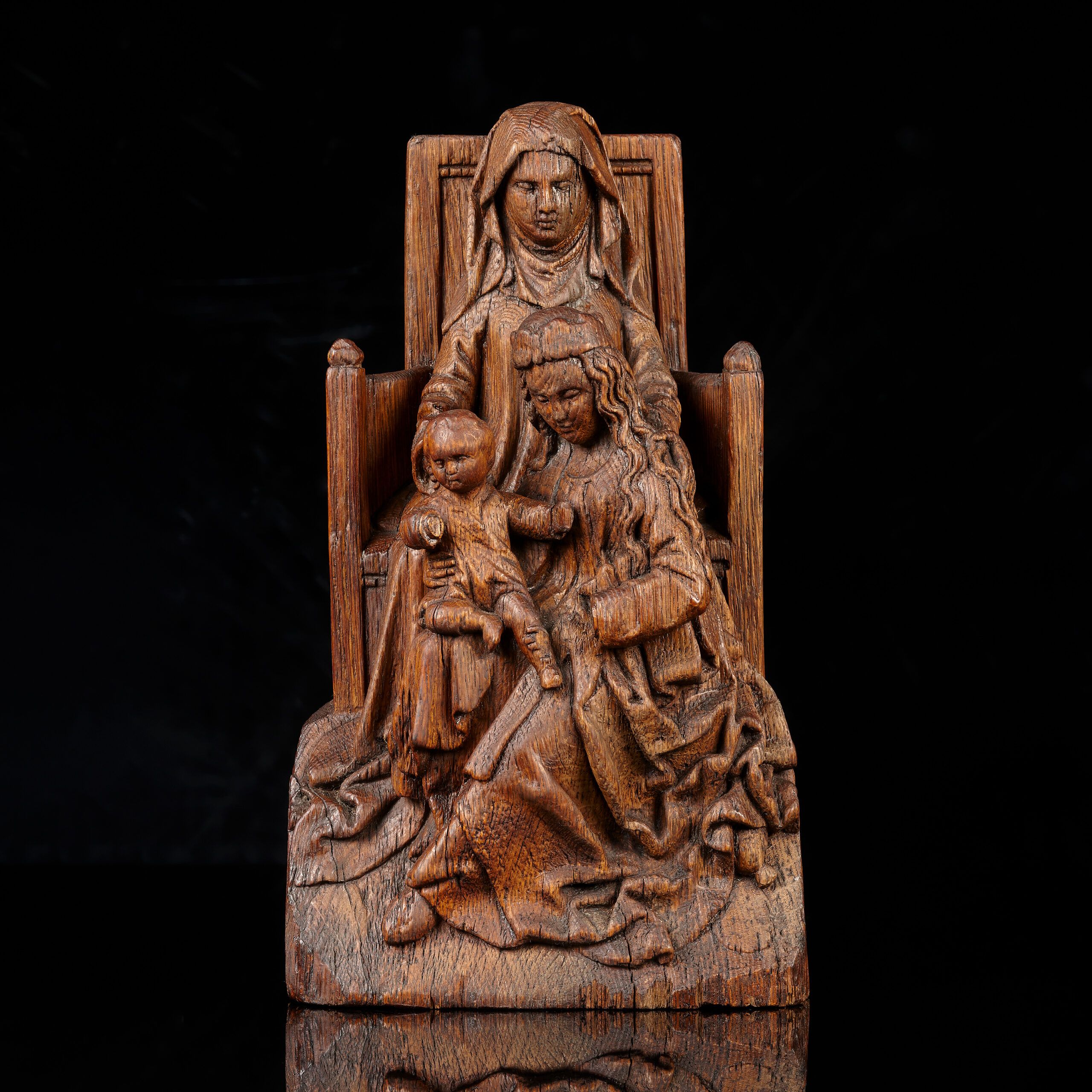Northern Netherlands | Utrecht
Late Gothic | First quarter of the 16th Century | Ca. 1510/20
Oak | Cared in full-round
H. 30,4 cm. W. 16,3 cm. D. 10,4 cm.
PROVENANCE
Collection Dreesmann-Houtkooper | The Netherlands;
Thence by decent private collection | Breda | The Netherlands
REFERENCE LITERATURE
Bouvy, D. (1966). Kerkelijke kunst. Beeldhouwkunst. Vol II, p. 36, ill. 3, p. 51, ill. 25;
Brandenbarg, T. (1992). Heilige Anna, Grote Moeder. De cultus van de Heilige Moeder Anna en haar familie in de Nederlanden en aangrenzende streken. Nijmegen: Uitgeverij SUN, pp. 120-120, nrs. 55-56, ills. 68-69, p. 126, nr. 67, ill. 78;
Vlierden, M. van (2004). Hout- en steensculptuur van Museum Catharijneconvent. Zwolle: Waanders, pp. 225-229;
Preising, D. & Rief, M. (2013). Mittelalterliche Bildwerke aus Utrecht 1430-1530. Stuttgart: Belser, pp. 263-264, nr. 45, pp. 267-268, nr. 47
CATALOGUE NOTE
This fine group strongly relates to four Saint Anne sculptures, kept in the collection of Museum Catharijneconvent in Utrecht, dating to the first quarter of the 16th Century and situated in Utrecht (inv. nrs. ABM bh340, ABM bh339, ABM bh591 and ABM bh342; Vlierden, 2004, pp. 225-229; Preising, 2013, pp. 263-264). Another possibly Utrecht example dating to the end of the 15th century is kept in the collection of the Suermond-Ludwig-Museum in Aachen (inv. nr. SK 323; Preising, 2013, pp. 267-268).
Typical are the composition of Saint Anne seated on a large throne, with a lower seated Virgin and Child, in the present case sitting on a cushion. Bouvy states that this hierarchical depiction, emphasizing the generational difference between Saint Anne and the Virgin together with the harlequin-pose of the Christ Child is typical for the ‘Sticht’ (or Utrecht) region (1966, p. 36, p. 51). The supple, complicated folds of the drapery and the pointed shoe of the Virgin related to the oak relief kept in the collection of the Westfälisches Landesmuseum für Kunst und Kultuurgeschichte, Münster (inv. nr. E 231; Brandenbarg, 1992, p. 126).

